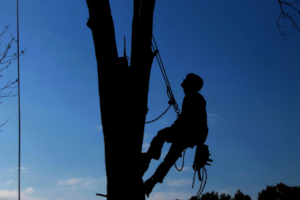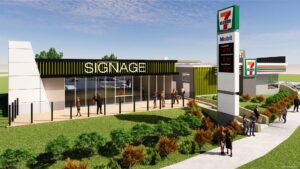They are horticulturally trained and can provide specialist advice on the care and management of your trees. They understand the health benefits of regular pruning and shaping.
 A lopper cuts tree branches to stubs and often removes the leaves. It robs the tree of its ability to feed itself and can starve the plant.
A lopper cuts tree branches to stubs and often removes the leaves. It robs the tree of its ability to feed itself and can starve the plant.
Safety
Tree lopping is dangerous, and the right equipment and crew are required to undertake this work. Each year, workers are seriously injured or killed during this type of work. It is why using a qualified tree lopper Adelaide Hills who takes safety measures to minimise risks is essential. It includes performing a risk assessment and documenting the method of work to be performed. These documents will become the safe work procedures for this task.
Regular pruning and lopping help maintain the health of trees by cutting overweight branches, removing dead or dying limbs and shaping the canopy. It also prevents unbalanced growth that can make a tree more susceptible to storm damage or falling over in a windstorm.
Tree lopping is a form of development and requires Development Approval from Council, except for removing dead trees on property boundaries within 20 metres of your house in a bushfire-prone area. This company has the horticultural training, qualifications, equipment and crew to carry out all tree jobs.
Insurance
When hiring a tree lopping company, check to see if they have the proper insurance policies. It is important because if something goes wrong during the process, you want to ensure you’re covered. Insurance also covers damage to neighbouring buildings and services during the removal process.
A tree lopper Adelaide Hills cuts down trees for a fee. They usually don’t care about the long-term health of the trees they cut, but an arborist thinks about the whole picture regarding tree maintenance and pruning. While they may cost more upfront, an arborist is worth the investment.
According to data from location intelligence and aerial imaging company Nearmap, most Adelaide suburbs have significantly less tree canopy coverage than they did a decade ago. The findings of this study have renewed calls for new laws to be implemented to protect the state’s trees.
Removing a large tree from a suburban property is a significant job and requires careful planning. Consider many considerations, including safety for everyone involved and the impact on nearby properties. Having the right team on hand is essential to ensure your project succeeds.
Experience
Finding an arborist with the right experience is essential when looking for a tree lopper. They need to be qualified and have a full-scope service offering. They should be able to advise on all aspects of your trees’ health and appearance, from pruning and removal to reshaping and shaping.
Be wary of companies that offer a “mow ‘n go” type of pruning, which indiscriminately cuts branches to stubs and removes leaves. These poor pruning methods starve a tree, limiting its access to light and nutrients. Additionally, they encourage the spread of pests and diseases, which will ultimately kill the tree.
Adelaide Hills Tree Services is a family-owned and operated business servicing the Hahndorf area of South Australia. They have over 25 years of experience in all areas of arboriculture, including tree pruning and removal. They have an extensive fleet, climbing equipment, and a highly-trained ground crew. The company is also fully insured, which gives its clients peace of mind. In addition, their rates are competitive and affordable. They even offer a free quote on all their services. Call them today to learn more about their services.
Qualifications
When you hire a tree lopper Adelaide Hills, you want to ensure they have the right qualifications and experience. A qualified arborist is certified by the International Society of Arboriculture and trained to prune, trim, and remove trees safely and correctly while maintaining long-term health. They also have the training and equipment to perform tree hazard assessments and adhere to stringent safety standards. If you are hiring a tree lopper, it is essential to check their insurance coverage before signing a contract. Some states require professional licenses for those who work on trees, so be sure to look up the requirements in your state before hiring someone.
 Regular testing of white appliances, particularly as their warranties near expiry, is advised to reduce repair bills and save money on repair bills.
Regular testing of white appliances, particularly as their warranties near expiry, is advised to reduce repair bills and save money on repair bills. Located within the new City of Playford suburbs of Parafield and Munno Para, the retail hubs are Leyton Property’s first foray into Large Format Retail (LFR) which has experienced record-low vacancy rates nationally. This tightening market has been fueled by retailers’ demand to expand their presence in the fast-growing area. The development partners have partnered with construction companies Bella Build for the Parafield site and Sagle Constructions for the Munno Parasite. Both projects are due for completion later this year, with several high-profile tenants already secured, including RSEA Safety, BCF, Petbarn, Toymate, and Revo Fitness.
Located within the new City of Playford suburbs of Parafield and Munno Para, the retail hubs are Leyton Property’s first foray into Large Format Retail (LFR) which has experienced record-low vacancy rates nationally. This tightening market has been fueled by retailers’ demand to expand their presence in the fast-growing area. The development partners have partnered with construction companies Bella Build for the Parafield site and Sagle Constructions for the Munno Parasite. Both projects are due for completion later this year, with several high-profile tenants already secured, including RSEA Safety, BCF, Petbarn, Toymate, and Revo Fitness.